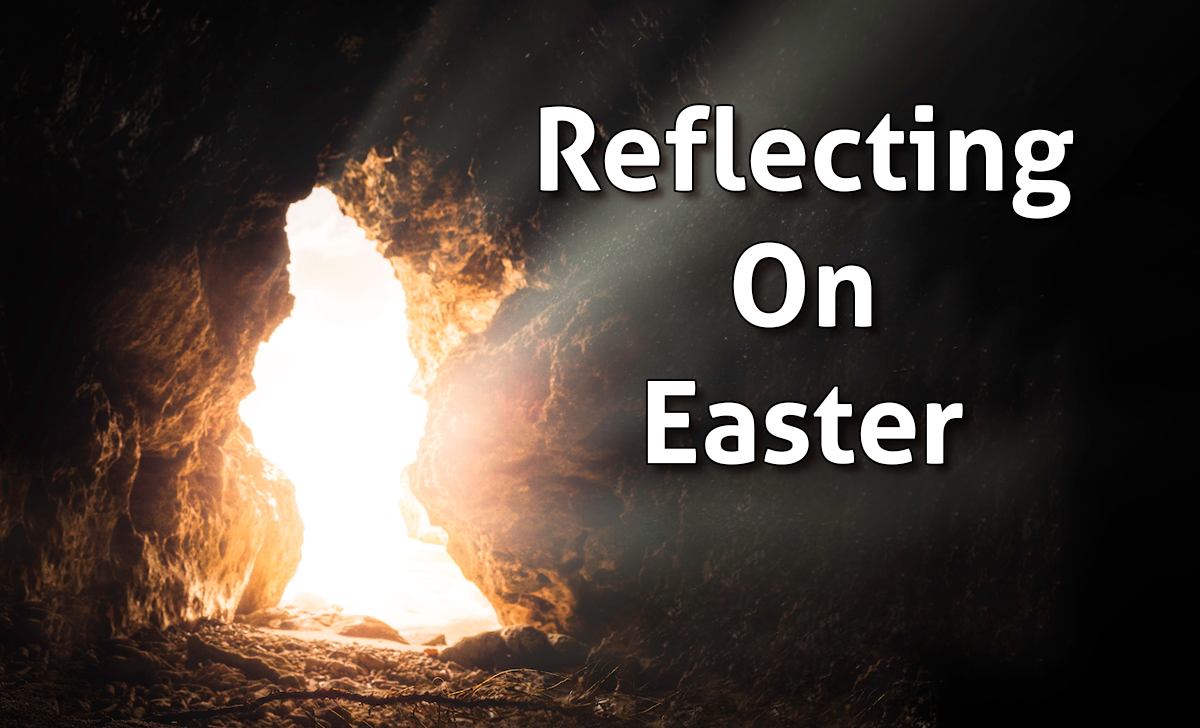
Always one to plan a few months into the future, my head and heart are deep in the Easter season. Not only have I been focused on the death and resurrection of Jesus as a result of preparing sermons from Mark 16, but I have also been reflecting on his death and resurrection in preparation for Holy Week and Easter Sunday. These services begin with Palm Sunday, April 10. And thus, I have been living in April for half of February and all of March. Preparation requires this. But circumstances might as well.
Many of us are traveling through difficult circumstances individually; things like illness, financial stress, tested relationships, anxiety, and depression. These uninvited guests sometimes become our traveling companions. We are, together, traveling through difficult circumstances in the life of our church. So, too, we are traveling through difficult circumstances as a denomination. Likewise, the church body at large, especially in Ukraine, is traveling through difficult circumstances. Many nations are traveling through difficult circumstances in the face of an oppressor nation. And our nation will travel through this more and more politically and economically.
Yet, out of sheer practical necessity, I have been in a warm cocoon of thoughts and reflections about the Easter season. This has ministered to my soul in many ways. May I commend this to you? Easter is coming.
The music historian and Reformed theologian John Witvliet reminds us that the Roman world changed in AD 313 when Emperor Constantine, supposedly having converted to Christianity himself, encouraged (ordered?) others to do so as well through his Edict of Milan. Faced with church services bursting at the seams with new faces, many of whom were suspected to be less than sincere believers, pastors around the Empire took action. According to Witvliet, pastors immediately instituted various practices to disciple these new “converts.” The church sought to disciple these men and women over a season of 40 days (minus Sundays) in preparation for Easter. The goal was to test and develop their profession of faith. Pastors led them in prayer and fasting, but also in deliberate Bible instruction and memorization of the church’s catechisms. It was a season of traveling through the ordinary circumstances of life, with intentionality. Amidst the ordinariness of life, these pastors pressed a question that deserves special attention: “Do you not know that all of us who have been baptized into Christ Jesus were baptized into his death?” (Romans 6.3)
It is for this historical reality that we should understand the missional context, says Witvliet, of the season before Easter. In this context, there was an influx of people rushing into the church family who knew virtually nothing about life within that family. These were outsiders yearning to become insiders, but largely clueless. Wise pastors knew that these largely perfunctory professions of faith needed calibrating. These men and women needed to understand they “were buried therefore with him by baptism into death, in order that, just as Christ was raised from the dead by the glory of the Father, we too might walk in newness of life.” (Romans 6.4) This month (and last month) I have been contemplating the death and resurrection of Jesus. Let me encourage you to do the same.
You can begin by scrutinizing the various seasons of your own calendar. All of them. Spring Break. March Madness. Autism Awareness month. Tax season. Even the opening of the Formula 1 season. These seasons are important, hold value for us, and connect us with larger communities. These are important seasons. But are all of our waking hours spent pondering, preparing, discussing, impatiently waiting, hoping through the experience of these seasons? Are we participating in these seasons, or being consumed by them?
Easter is coming. Pastors of the fourth century led their people in a season of reflecting upon who they are as Christians. As these pastors reminded their flock, I am reminding our flock: “if we have been united with Him in a death like his, we shall certainly be united with him in a resurrection like his.” (Romans 6.5) Not only this, but as Christians we ought to “know that our old self was crucified with him in order that the body of sin might be brought to nothing, so that we would no longer be enslaved to sin.” (Romans 6.6)
The circumstances of life continue to swirl around us. Personally. As a church family. Nationally. Globally. But Easter is coming. Imagine, for a moment, that you are a new believer still struggling to appreciate the enormity of your relationship with Jesus and the enormity of what He has done to secure this relationship with you. The ordinary disciplines of the Christian life are just that: ordinary. But just as you scrutinize the seasons of your own calendar, scrutinize your commitment to the ordinary means of grace in your life. Tend to your prayer life, alone and with others. Tend to your Bible reading and Bible meditation. Tend to your fellowship with other Christians. And tend to your participation in the corporate worship of the church leading to Palm Sunday.







